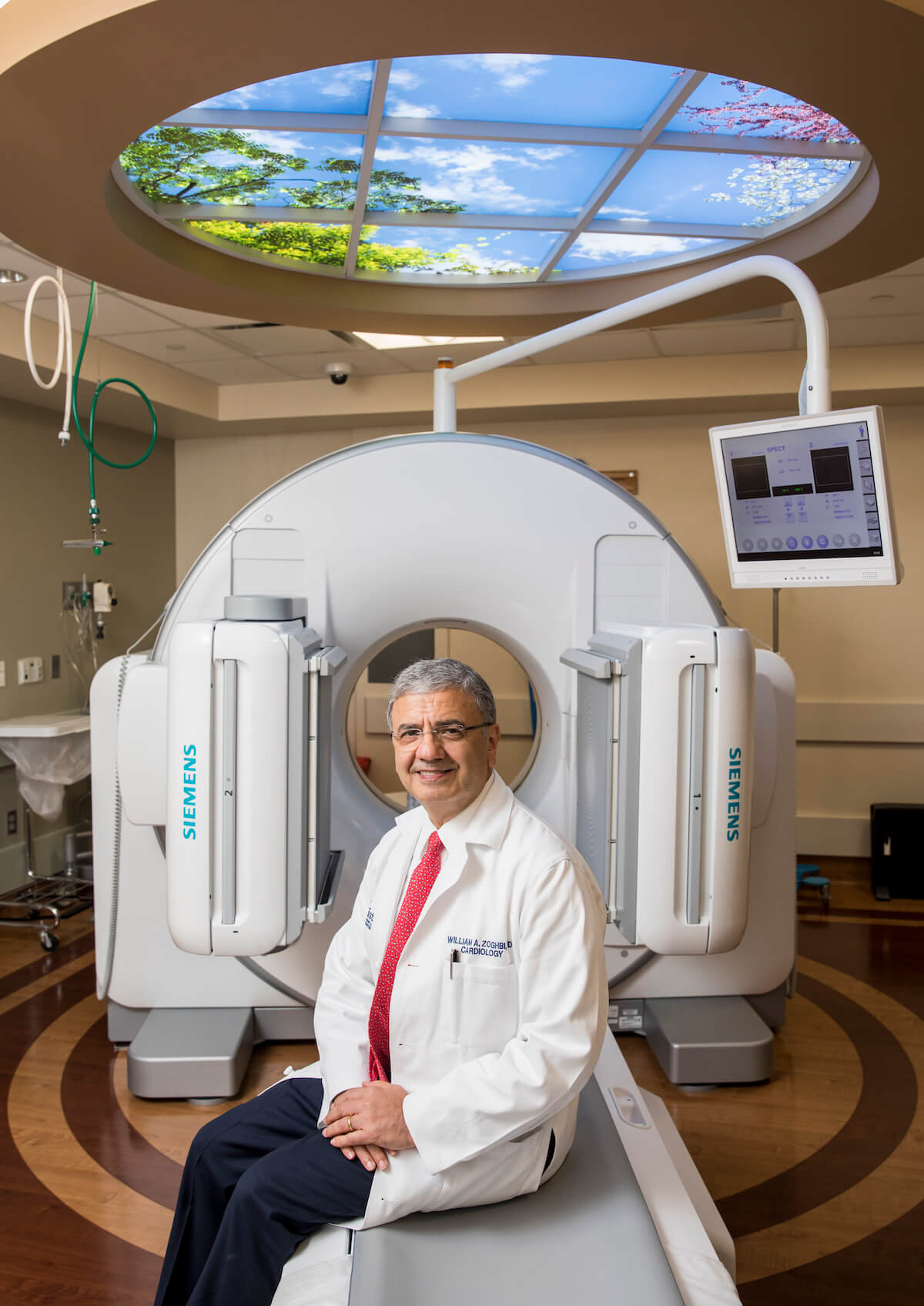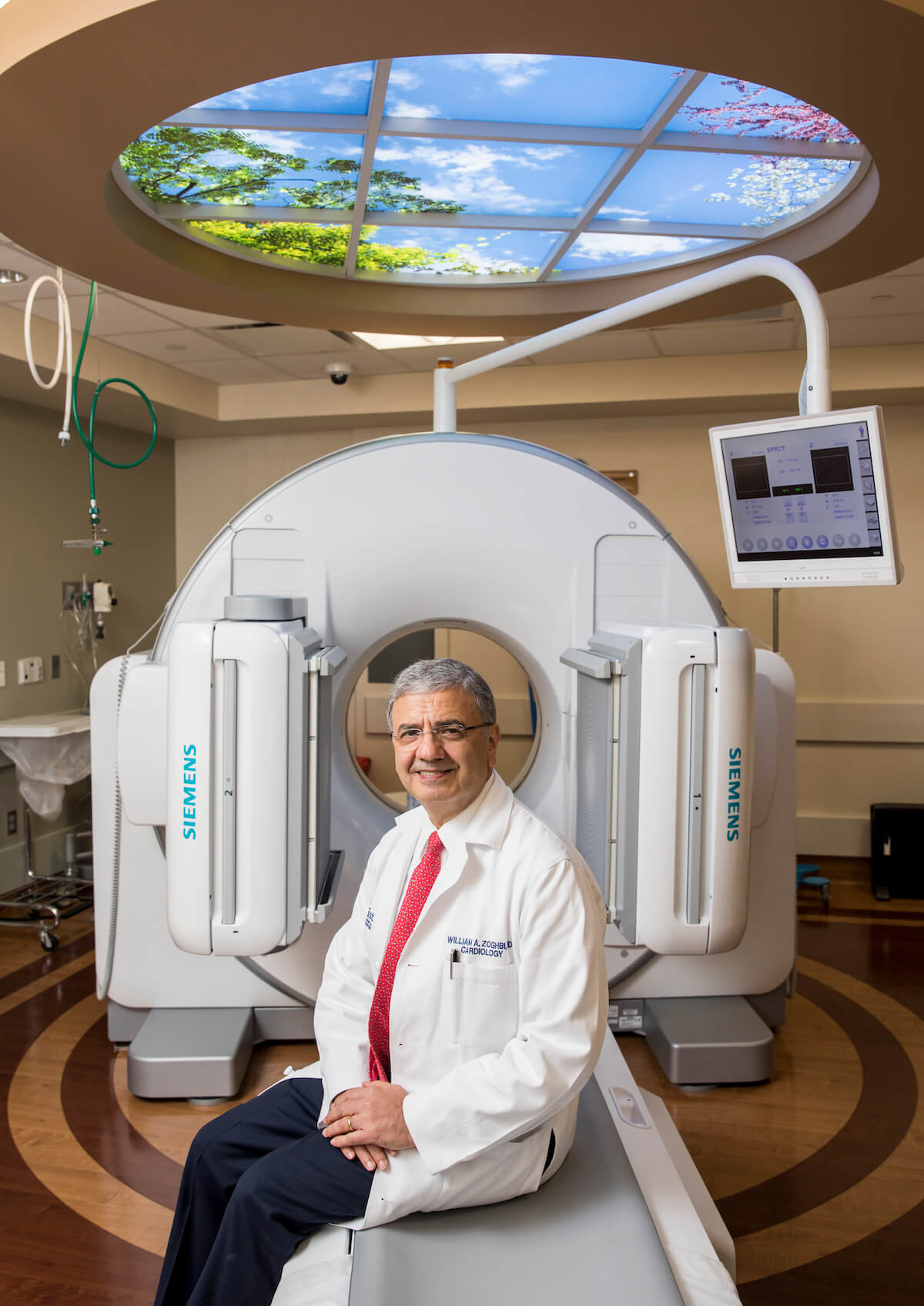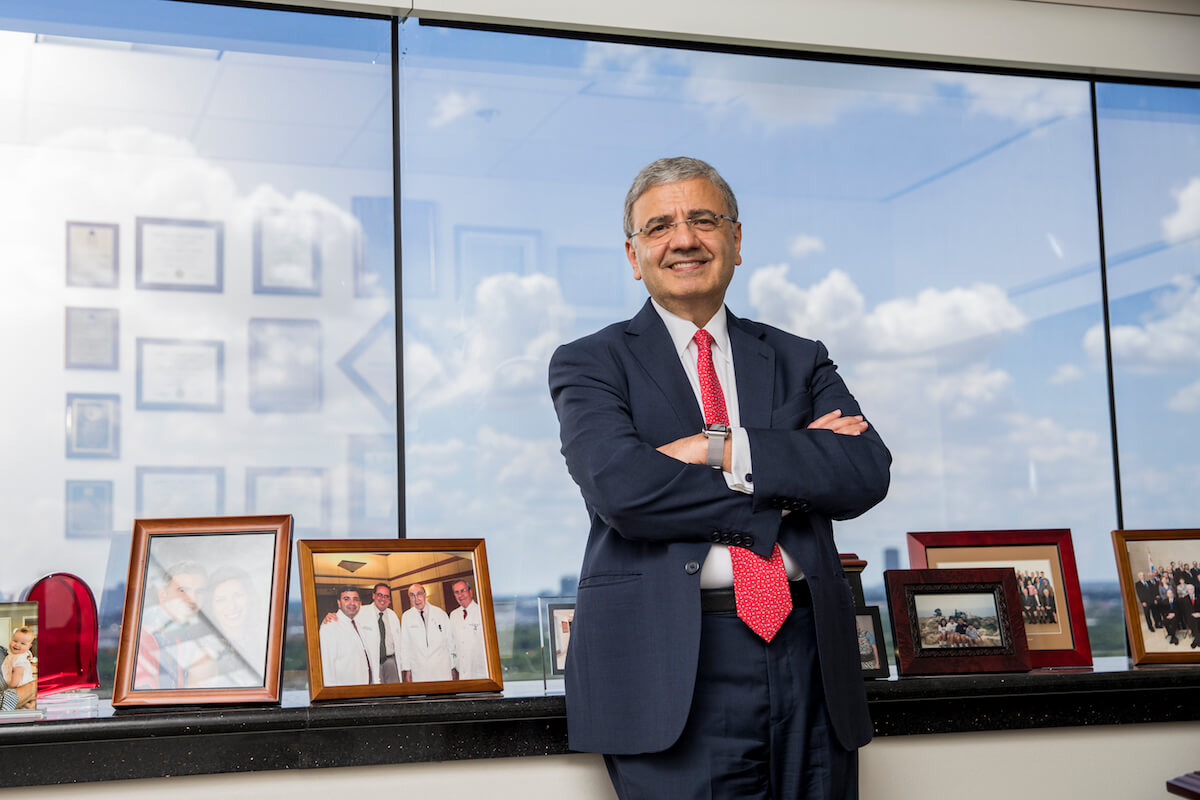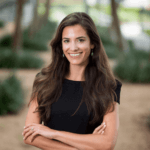Echocardiography Pioneer William Zoghbi, M.D.

WILLIAM ZOGHBI, M.D., started medical school in war-torn Beirut and went on to become a leading cardiologist in Houston. Professionally, he cares for and repairs hearts while advocating for cardiovascular health. Personally, he demonstrates a healthy lifestyle through diet and exercise. Chair of the department of cardiology at Houston Methodist Hospital and the Elkins Family Distinguished Chair in Cardiac Health at Houston Methodist DeBakey Heart & Vascular Center, Zoghbi has served as president of the American College of Cardiology and the American Society of Echocardiography.
Q | You were born in the small town of Ghazir, Lebanon. Can you describe your upbringing there?
A | Just to set the scene: it overlooked the Mediterranean, in the mountains, at about 1,000- feet elevation. Growing up there gave me a great opportunity to love the outdoors and nature. I love the sea, fishing, hiking—just being outdoors.
My father was a carpenter with a billiard factory. My mother was fluent in French, so she was his correspondent with the rest of the world. She was also a home mom—she took care of us and everything else. From my parents, I learned independence, the pursuit of excellence and the importance of education.
Q | How did you know you wanted to become a cardiologist?
A | I loved math, science and physics, and I was inclined to be an engineer. I had a chance encounter with a medical student who graduated from my high school. We talked about how you have to be an expert not only in the medical sciences, but in the humanities, and that you have the opportunity to have wonderful interactions with individuals. Interestingly, when I was 5, my mother went regularly to the butcher, as was common in that day, and when she would get animal hearts (chicken or goat) , I was always fascinated by them and ask her to dissect them for me, so I learned anatomy from her and she always reminds me of that. There was a fascination with the heart that I had. There were no physicians in my family. I was the first.
Q | You started medical school in Lebanon, but finished in the United States. Why did you transfer?
A | I went to the American University of Beirut (AUB), where I did my pre-medical school and then medical school. During my first year of medical school was when the [Lebanese Civil] war started. We lived on the first floor for about six months, trying to be sheltered from bombs and various things. Because of the intensity of the war, I started to look at opportunities outside of Lebanon. It was very difficult to transfer because I was in the middle of medical school. Luckily, after sending about 20 or 30 letters, I found out that one school accepted my transfer. I came to Tennessee—Meharry Medical College. I’m very grateful they accepted me.
Q | What did you learn from that disruption to your education?
A | One thing about the adversity I was exposed to during the war is that it makes you much more adaptable. I think we have to be adaptable to different situations and try to find solutions to problems.
Q | How did you meet your future wife, Huda Zoghbi, M.D. (née El-Hibri), a fellow student who would go on to become a renowned geneticist afiliated with Baylor College of Medicine and Texas Children’s Hospital?
A | I think our first meeting was in anatomy class [at AUB]—not the most romantic setting. She came to the States a year earlier [than I did]. We reconnected at Meharry. At that time, there was no couples matching, but we matched in Texas. She matched at Baylor College of Medicine and me at The University of Texas Medical Branch at Galveston (UTMB), then we saw each other back in Houston and the rest is history. We got married here in Houston in 1983.
Q | What else drew you to Houston?
A | The big name that drew me was really Dr. [Michael] DeBakey and all the history of cardiovascular medicine that really was born in this city and at Houston Methodist and Baylor. It really is amazing how influential Houston has been in charting the major developments in cardiovascular disease. It has been an honor to train alongside the giants in medicine.
Q | Many consider you to be a pioneer in the field of echocardiography. What led you to specialize in this area?
A | When I was doing my training, my mentor was Miguel Quiñones, M.D. He became my very close colleague. What attracted me to echocardiography was not only his mentorship, but also because I was able to see the heart in real time with ultrasound, without any invasive procedures. Ultrasound or echocardiography is the imaging portion of seeing the structure and the heart move—ticking and pumping. My major driver is to be able to understand diseases of the heart and vasculature with non-invasive imaging so we can detect disease early and understand how best to manage it.
Q | Heart disease is the leading cause of death for both men and women in the United States. What are some of the biggest challenges Americans are facing?
A | If you look back over the past 40 years, the mortality as well as morbidity of heart disease has decreased by 40 percent in the U.S. This is predominantly because of advances in medications, quitting smoking, reducing blood pressure, lifestyle changes and the devices we have now, such as pacemakers and defibrillators. The impact has been tremendous. Cancer is just a very close second and we do hope, and I will be elated, when we are No. 2. But there are trends in this country, unfortunately, that will erode some of these advances and outcomes. If you look at the maps of obesity in the country—and diabetes goes along with obesity—they are scary. If you think about health in the United States, we have one-third obese, one-third overweight and only about 30 percent ideal body weight. This is preventable.
Q | How do we improve these dismal statistics?
A | The ultimate goal for all of us is increasing longevity coupled with good quality of life. Yes, it is costly, and even now there are a lot of co-morbidities, but I do hope we can engage the population and make patients aware of the importance of preventive and wellness measures. Many people know what is good and what is bad for them, but knowledge is not enough—you need action. How do you stimulate people and engage them to get into healthy behaviors, diets and exercises? I think this is our current challenge.
Q | Both of your children work in health care. How do you and your wife feel about them following in your footsteps?
A | Roula is our eldest. She works as the director of business operations at Texas Childen’s Urgent Care. She has a beautiful daughter, Camila, nearly 2 years old. We get to see her often and volunteer to babysit any time. We also have a son, Anthony, who just finished his psychiatry residency at Columbia University. He married his sweetheart from medical school at Baylor. My wife and I are very proud of both of them
Q | You’re 63. How do you stay healthy?
A | I exercise regularly. I like to fast-walk with in-between spurts of jogging. That is important for me and my wife. We do that together, often
three to four times a week. I go to the gym. I use free weights and do reps. For exercise, I don’t only think about cardiovascular. Toning and flexibility are important as we grow in wisdom and age. Joints and muscles and core are as important as cardio. Foodwise, growing up in the Mediterranean, that is my favorite and it turns out to be the healthiest. Fruit and a little espresso in the morning and, during the day, something light. We usually bring leftovers from home. Lots of fruits and vegetables—not fully vegetarian, but maybe 80 percent. And lean and healthy. My take on diet also is to have as much variety as you can, good portion control and treat yourself so you don’t have cravings.
Q | Do you consider Houston home?
A | I have two homes. Houston is definitely home for the majority of my life, but I feel I am a citizen of the world. I love to travel and explore many areas of the world. Lebanon is still my roots and I love the whole Middle East.
William Zoghbi, M.D., was interviewed by Pulse Staff Writer Britni R. McAshan. The conversation was edited for clarity and length.






